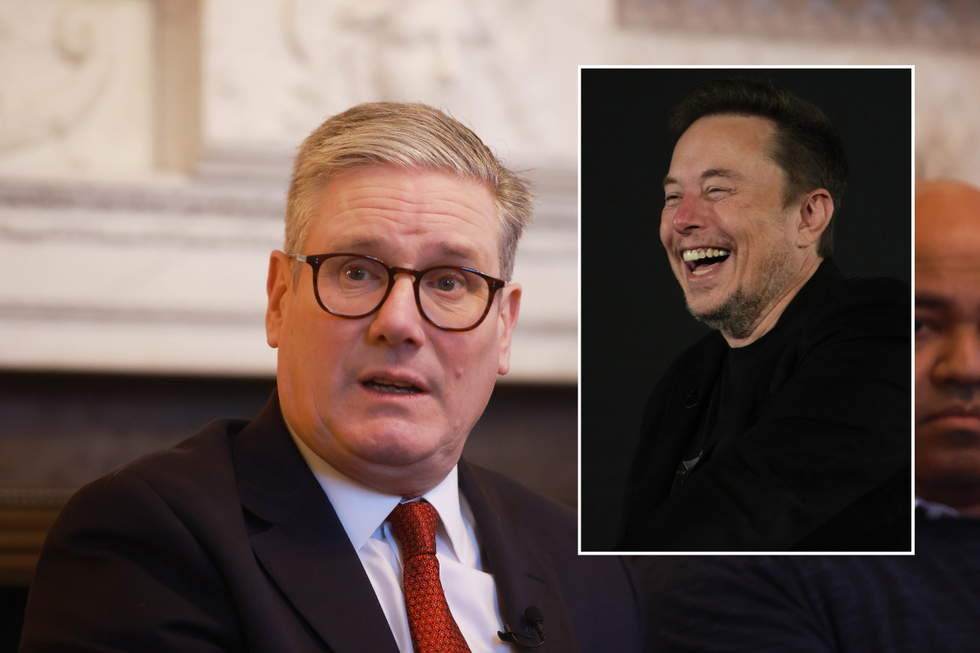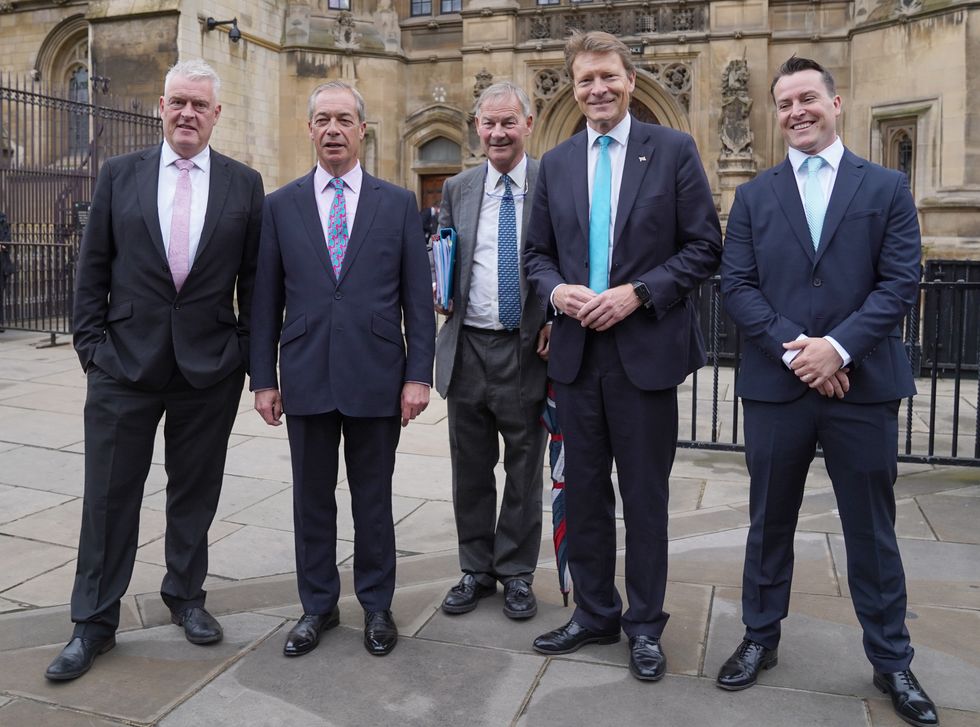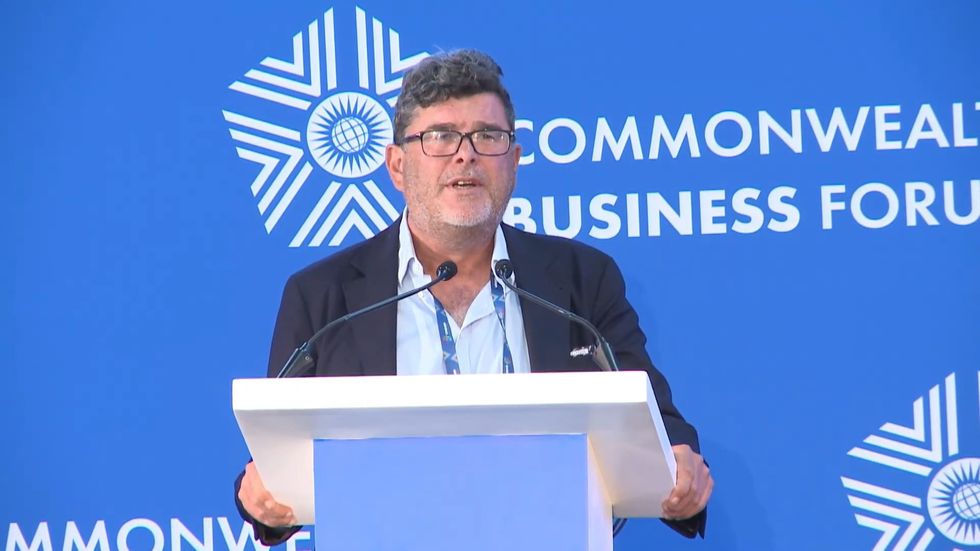George Bunn
Guest Reporter
Ministers are considering introducing a cap on political donations as part of reforms to the UK electoral system.
In a new report, the Institute for Public Policy Research will recommend that ministers limit individual and corporate donations to political parties to £100,000 a year, according to The Guardian.
It comes after it was reported Reform UK could be the recipient of a potential $100million donation from Elon Musk.
Reform leader and Clacton MP Nigel Farage told GB News: "It hasn't been discussed with me" acknowledging that whilst Musk is "very supportive" of his aims, suggestions of the major financial contribution remain unconfirmed.

Claims that controversial billionaire Musk is considering supporting Farage through the UK arm of his social media platform X may result in fresh calls to tighten the rules around political donations and impose limits.
Musk has previously voiced praise for Reform UK, suggesting they will win the next General Election.
As part of their General Election manifesto, Labour promised to "protect democracy by strengthening the rules around donations to political parties." They added there was an aim to tighten protections around foreign interference in UK democracy.
While they were in opposition, Labour raised concerns about the Conservative government’s decision to abolish the 15-year cut-off at which UK citizens who live abroad were no longer eligible to vote in general elections.
LATEST DEVELOPMENTS


The Conservatives, meanwhile, have benefited from more than £20m in donations from the businessman Frank Hester since the start of 2023.
Hester was at the centre of a political firestorm after he suggested the former Shadow Home Secretary Diane Abbott made him "want to hate all black women" and that the Hackney North and Stoke Newington MP "should be shot."
Meanwhile, Labour received more in donations than all other parties combined during the election campaign, collecting more than £9.5m in total.
Labour's biggest donor was David Sainsbury, the former chair of the Sainsbury’s supermarket chain, who gave Sir Keir Starmer's party £2.5m.
The Liberal Democrats and Reform UK continued to tie virtually neck and neck with final sums over the election period of £1.7 million, and £1.6 million, respectively.
The total sums donated to other parties were far lower; next in line were the Green Party, accepting £160,000, and the Scottish National Party with £127,998, according to the Electoral Reform Society.
Donation caps are among a number of measures the government is looking at as part of plans for an election and democracy bill in the next parliamentary session.
The bill did not form part of the king’s speech in July and is therefore not expected at the next session in 2026 or later.
A Ministry of Housing, Communities and Local Government spokesperson told The Guardian: “As set out in the manifesto, we are working to strengthen the rules around donations to political parties to ensure we maintain trust in our electoral system.
"We will set out more details on this in due course."
Find Out More...
In a new report, the Institute for Public Policy Research will recommend that ministers limit individual and corporate donations to political parties to £100,000 a year, according to The Guardian.
It comes after it was reported Reform UK could be the recipient of a potential $100million donation from Elon Musk.
Reform leader and Clacton MP Nigel Farage told GB News: "It hasn't been discussed with me" acknowledging that whilst Musk is "very supportive" of his aims, suggestions of the major financial contribution remain unconfirmed.

Claims that controversial billionaire Musk is considering supporting Farage through the UK arm of his social media platform X may result in fresh calls to tighten the rules around political donations and impose limits.
Musk has previously voiced praise for Reform UK, suggesting they will win the next General Election.
As part of their General Election manifesto, Labour promised to "protect democracy by strengthening the rules around donations to political parties." They added there was an aim to tighten protections around foreign interference in UK democracy.
While they were in opposition, Labour raised concerns about the Conservative government’s decision to abolish the 15-year cut-off at which UK citizens who live abroad were no longer eligible to vote in general elections.
LATEST DEVELOPMENTS
- Foreign criminals who dodged deportation committed OVER 10,000 offences in just one year
- Belgian sex workers given full employment rights under new law with social security and pension
- Barrister accused of faking late mother's signature in row with brother over £1.2m inheritance


The Conservatives, meanwhile, have benefited from more than £20m in donations from the businessman Frank Hester since the start of 2023.
Hester was at the centre of a political firestorm after he suggested the former Shadow Home Secretary Diane Abbott made him "want to hate all black women" and that the Hackney North and Stoke Newington MP "should be shot."
Meanwhile, Labour received more in donations than all other parties combined during the election campaign, collecting more than £9.5m in total.
Labour's biggest donor was David Sainsbury, the former chair of the Sainsbury’s supermarket chain, who gave Sir Keir Starmer's party £2.5m.
The Liberal Democrats and Reform UK continued to tie virtually neck and neck with final sums over the election period of £1.7 million, and £1.6 million, respectively.
The total sums donated to other parties were far lower; next in line were the Green Party, accepting £160,000, and the Scottish National Party with £127,998, according to the Electoral Reform Society.
Donation caps are among a number of measures the government is looking at as part of plans for an election and democracy bill in the next parliamentary session.
The bill did not form part of the king’s speech in July and is therefore not expected at the next session in 2026 or later.
A Ministry of Housing, Communities and Local Government spokesperson told The Guardian: “As set out in the manifesto, we are working to strengthen the rules around donations to political parties to ensure we maintain trust in our electoral system.
"We will set out more details on this in due course."
Find Out More...